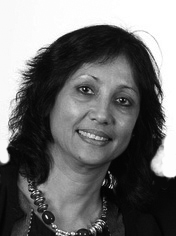
Kurdish women infiltrate Conservative party HQ in London to highlight plight of besieged city of Afrin.
An invasion was imminent. Sure enough, as expected, a day later on 20 January, Turkey invaded. In London since then there have been demonstrations outside Downing Street, the Russian embassy, a march from the BBC to Trafalgar Square and a group of Kurdish women even occupied the Conservative Party HQ on 29 January to protest against the sale of arms to Turkey.
Protest meetings, letter writing campaigns and political lobbying are being carried out across Europe and the US wherever there is a sizeable Kurdish community. The anger is palpable. Behind that there is the determination and confidence of a people whose forces fought ISIS and won.
But what will it take to turn around the juggernaut of geo-political interests in the area when the world’s biggest players refuse to come on board? The Kurds have done the dirty work of the West, reducing ISIS to a rump of its former self in Syria at great cost to themselves. They have won the admiration of the world for their guts and grit but will that admiration be transformed into loyalty and support?
It appears not. The US and the UK are standing by Turkey, their NATO ally: since 2015 the UK has sold Turkey £330m-worth of arms. It is listed as a ‘priority market’ for arms exports. US arms exports to Turkey are running at an annual figure of $1.5b. Boris Johnson supports the Turkish adventure as a border security issue, “Turkey is right to want to keep its borders secure.” The Americans urge both sides to focus on demolishing ISIS (when there is evidence that Turkey has supported the ISIS caliphate in Syria).
Donald Trump in a phone conversation with Erdoğan advised him to limit ‘civilian casualties’. Since when has it been legitimate for a country to protect its own borders by carving out 30kms of land from a neighbouring state in order to create a safe zone along Turkey’s southern border as Erdoğan plans to do?
Turkish security claims
We need to examine this claim by Erdoğan that Turkish security is threatened by the Kurds. It is not the first time in history that an aggressor country has constructed itself as the victim of its victims. The Kurds of Turkey are fighting for the right to their language, their culture, for equality and freedom, for the right to be visible and to not be blitzed out of existence. For this, they have been labelled terrorists. Not just the PKK (Workers’ Party of Kurdistan) and their leader Abdullah Öcalan who has been languishing in solitary confinement in Turkey since 1999 but also its sister party, PYD (Democratic Union Party) which has been the mobilising force behind the revolution in Rojava, Northern Syria.
Following meekly in the footsteps of its NATO ally, the PKK is on the proscribed list of organisations in the US, Europe and the UK.
What is the West doing adopting Turkey’s definition of terrorism? How can bully boys and aggressors label a resistance movement ‘terrorist’ when the whole question of Turkey’s accession to the EU spun on the notion of whether they were democratic enough? While state terrorism may not be an internationally accepted legal concept, it is beyond dispute that Erdoğan is in breach of international human rights law on a range of different markers. Nearly 200,000 people have been jailed since the coup attempt in 2016, including 300 journalists; more than 160,000 soldiers, judges, teachers and civil servants have been dismissed or suspended; 3000 universities and 189 media outlets have been shut down. Almost 5000 members of the democratically elected, pro-Kurdish opposition party HDP (People’s Democratic Party) have been detained. Should we be taking this man’s lead on definitions of terrorism?
All of us
Many commentators have remarked on how the Turkish invasion of Syria represents a new and dangerous phase in Syria’s civil war. Whilst that is definitely a concern, especially for the war weary people of Syria, seeing it only in that light runs the risk of inducing compassion fatigue and a sense of helplessness in the West.
This is not just something that is happening ‘out there’, a problem without a solution in sight. There is another reason why it should galvanise all of us into action: the Kurds in Northern Syria, in Rojava, are building another world that all progressive people have dreamt about and aspired to build.
Amazingly in this dusty, death-filled, war-torn part of the world, whilst their defence forces, the women-only YPJ and their mixed forces, the YPG, have been facing down the brutality of ISIS, others have been building a secular, radical democracy on the principles of gender equality, ethnic inclusivity and ecological sustainability which I have written about extensively on 5050. In contrast to the sectarianism which is bursting out like boils across the Middle-East, often with the encouragement of world powers, this is a multi-ethnic society where the Kurdish people have voluntarily surrendered their majority status in their Parliament and taken a 10% stake alongside Arabs and Syriacs (Christians). It is not just a template for a peaceful Syria but, I would argue, for all of us.
It is our political responsibility to ensure that the Rojava experiment does not end, so that our spirit is not weighed down by yet another defeatist narrative that inequality and capitalist greed are part of human nature.
Rojava shows us the beauty of life when it is lived co-operatively, when we grow the food we need, not for profit, when we respect all ethnicities and give them an equal say in a truly democratic society, when we put women in equal charge of our destinies. This is what is now at stake.

